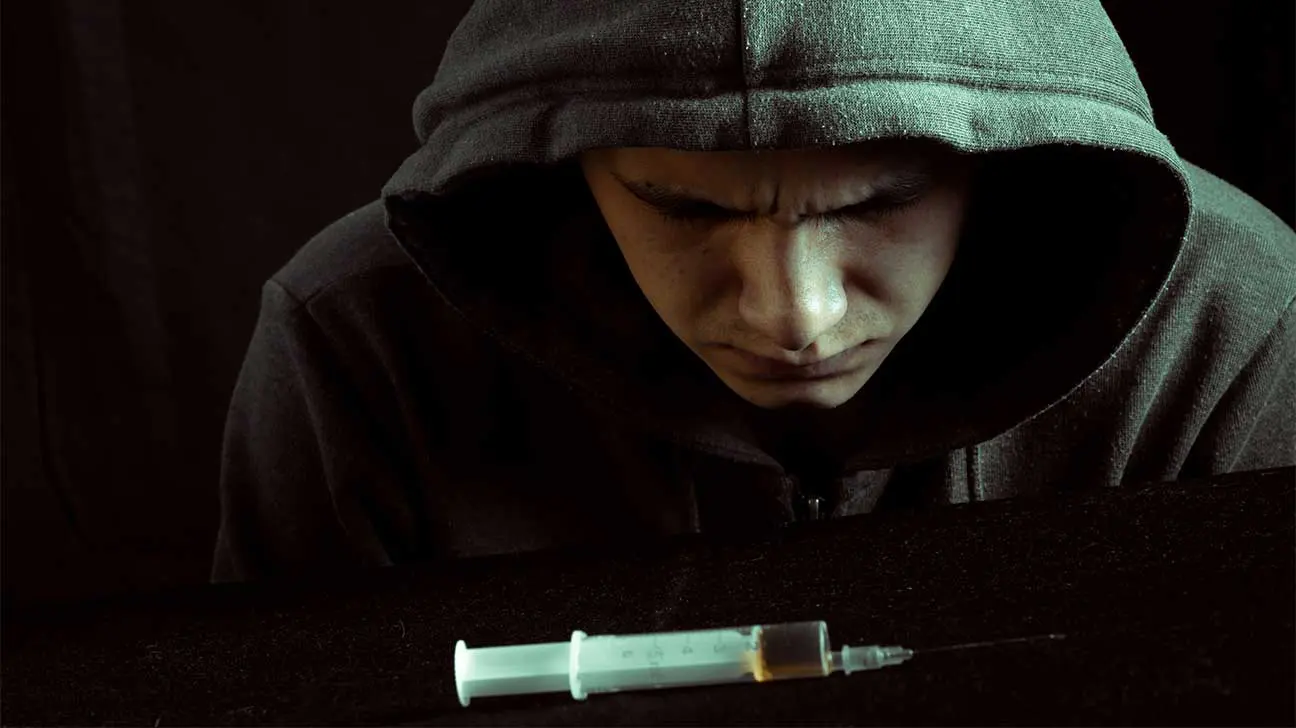
Relapse in recovery from heroin addiction is a common concern. According to research, an estimated 40 to 75 percent of people with a history of heroin addiction experience relapse.
Relapse is typically defined as a pattern of returning to drug use. It can also be identified as a lapse, or a single use. How relapse is defined can affect data on the percentage of people who relapse.
Learn more about heroin addiction recovery
How Common Is Heroin Relapse?
Data on the prevalence of heroin relapse varies. In some European studies, it was found that between 40 to 75 percent of people formerly addicted to heroin experience relapse.
According to the National Institute on Drug Abuse (NIDA), relapse rates with substance use disorders are comparable to rates of relapse associated with other chronic illnesses, like high blood pressure.
Roughly 40 to 60 percent of people who receive treatment for a substance use disorder experience relapse at some point, according to NIDA.
Despite these high estimates, relapse in recovery isn’t inevitable. And it’s not the end of a person’s recovery journey. Preventing relapse and getting back on track after relapse is possible.
What Causes Relapse In Heroin Addiction Recovery?
Relapse can be influenced by a variety of factors. Why a relapse occurs is not the same for everyone, and it is rarely attributable to a single cause.
Factors that can contribute to heroin relapse include:
- discontinuing treatment
- receiving ineffective treatment
- lack of a strong support system
- having untreated mental illness
- lacking stable housing
- difficulties in social or romantic life
- severe withdrawal symptoms
- being around people who are using heroin
- burnout in recovery
Relapse can be influenced by physiological factors, such as withdrawal and insomnia in heroin recovery, as well as social, emotional, and environmental factors.
Making big changes in life, or experiencing significant stress related to work, loss of a loved one, or interpersonal relationships can trigger urges to relapse, as a way to cope with this stress.
Relapse Prevention: How To Prevent Relapse In Heroin Recovery
Seeking addiction treatment for heroin use disorder is the number one way to help prevent relapse in recovery.
Evidence-based treatment services, such as medication-assisted treatment, are shown to help reduce relapse rates and reduce the severity of a relapse when it does occur.
Furthermore, many rehab programs for heroin addiction offer relapse prevention services, such as relapse prevention groups, individual counseling, and relapse prevention planning.
Call Today To Get Help With Heroin Recovery
Getting on track after a relapse to heroin use is possible. While experiencing relapse can feel like a failure, the truth is that this is very common. You’re not alone.
If you or a loved one formerly addicted to heroin has relapsed, call our helpline today to find the support you need to enter heroin addiction recovery.
Addiction Resource aims to provide only the most current, accurate information in regards to addiction and addiction treatment, which means we only reference the most credible sources available.
These include peer-reviewed journals, government entities and academic institutions, and leaders in addiction healthcare and advocacy. Learn more about how we safeguard our content by viewing our editorial policy.
- ScienceDirect—Relapse after inpatient substance use treatment: A prospective cohort study among users of illicit substances
https://www.sciencedirect.com/science/article/pii/S0306460318308542 - U.S. National Institute on Drug Abuse (NIDA)—Treatment and Recovery
https://www.drugabuse.gov/publications/drugs-brains-behavior-science-addiction/treatment-recovery - U.S. National Institute on Drug Abuse (NIDA)—The Science of Drug Use and Addiction: The Basics
https://www.drugabuse.gov/publications/media-guide/science-drug-use-addiction-basics - U.S. National Library of Medicine: PubMed—A Comparative Study of Factors Associated with Relapse in Alcohol Dependence and Opioid Dependence
https://www.ncbi.nlm.nih.gov/pmc/articles/PMC5688890/ - Wiley Online Library—Determinants and prevalence of relapse among patients with substance use disorders: case of Icyizere Psychotherapeutic Centre
https://substanceabusepolicy.biomedcentral.com/articles/10.1186/s13011-021-00347-0


